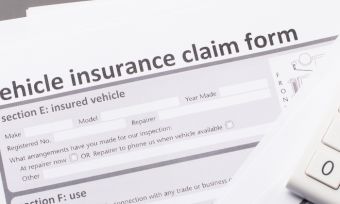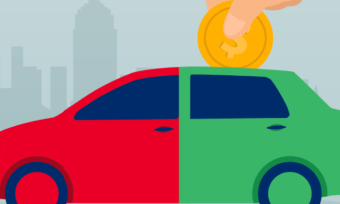Author: Tamika Seeto
Like many things in life, car insurance is a two-way street. Your insurer agrees to insure your vehicle but, in return, you need to make sure your car and the person driving it meet certain conditions. If you don’t, you could end up voiding your car insurance. Here are seven ways you might be voiding your car insurance cover.
1. Worn tyres
Driving a car with worn-out tyres is not only a safety risk, but it’s also risky from an insurance point of view. And tyres that are not up to scratch are an easy way of voiding your car insurance. New tyres typically come with tread depths of between 8-9mm, which can wear down over time. In New Zealand, the legal minimum tyre tread depth is 1.5mm. Anything below that and your car is considered unroadworthy, and your insurance is likely to be voided.
Keep in mind that while your tyre tread is checked during a WoF inspection, and may pass without issue, your tyres could drop below 1.5mm well before your next inspection a year later. Even with a WoF, it pays to stay on top of your tread, so you know when to start thinking about a new set of tyres.
2. Driving under the influence of drugs or alcohol
Although this may seem like a no-brainer, it’s worth noting that drugs can include certain medications, like sleeping pills, painkillers, cold and flu tablets and other medications that can impair your ability to drive. Additionally, insurers won’t cover you if your blood alcohol level (BAC) is over the legal limit, which seems obvious. But it’s worth noting that for drivers under 20, that limit is zero.
3. Ridesharing without telling your insurer
If you use your car for a ridesharing service like Uber or DiDi without letting your insurer know, this can also void your insurance. Many insurers won’t cover your car if it is damaged while generating income. As well as ridesharing, this may extend to using your car for food deliveries, like Uber Eats, or Delivereasy. If you intend to pick up a sharing economy gig, make sure you let your insurer know. Some insurers can extend your policy to cover this.
4. Using the wrong fuel
Filling up your car with the wrong fuel can be an easy mistake to make. It can also be a potentially expensive one. If you’ve put petrol in a diesel car or vice versa, your insurer is unlikely to cover you if your car is damaged as a result. While neither is ideal, putting petrol in a diesel car can cause serious damage to the fuel injection system and engine. Whereas if you put diesel in a petrol engine, your car usually won’t start and the results are less serious.
→Related article: Premium Petrol, Is It Worth It? Probably Not!
5. Overloading your car
Another way you could void your insurance is by overloading your car. This is when you are carrying more people or a larger load than your car is designed to carry. It could happen if you’re moving homes, for example, and have filled your car to the brim with moving boxes. If you tow an overloaded trailer, it is also likely to void your cover.
6. Modifying your car without telling your insurer
Not letting your insurer know about car modifications can also potentially void your insurance. This could include things like changing your car’s suspension, adding bull-bars or just doing a custom paint job. It’s worth checking your policy document to see what car modifications your insurer does and doesn’t cover.
→Related article: Read the fine print on insurance for modified cars
7. Forgetting to pay your premiums
Forgetting to pay your insurance premiums is another easy mistake to make. If you don’t pay your premiums on time, your policy could be cancelled. But if you pay your premiums monthly, you could avoid this by setting up a recurring direct debit. And if you pay annually, it’s important to remember to pay your premium by the due date to ensure you maintain your cover.
This list doesn’t cover everything, so it’s a good idea to check your car insurance product disclosure statement (PDS) for a full list of exclusions.

About the reviewer of this page
This report was reviewed by Canstar Content Producer, Andrew Broadley. Andrew is an experienced writer with a wide range of industry experience. Starting out, he cut his teeth working as a writer for print and online magazines, and he has worked in both journalism and editorial roles. His content has covered lifestyle and culture, marketing and, more recently, finance for Canstar.
Enjoy reading this article?
You can like us on Facebook and get social, or sign up to receive more news like this straight to your inbox.
By subscribing you agree to the Canstar Privacy Policy








Share this article